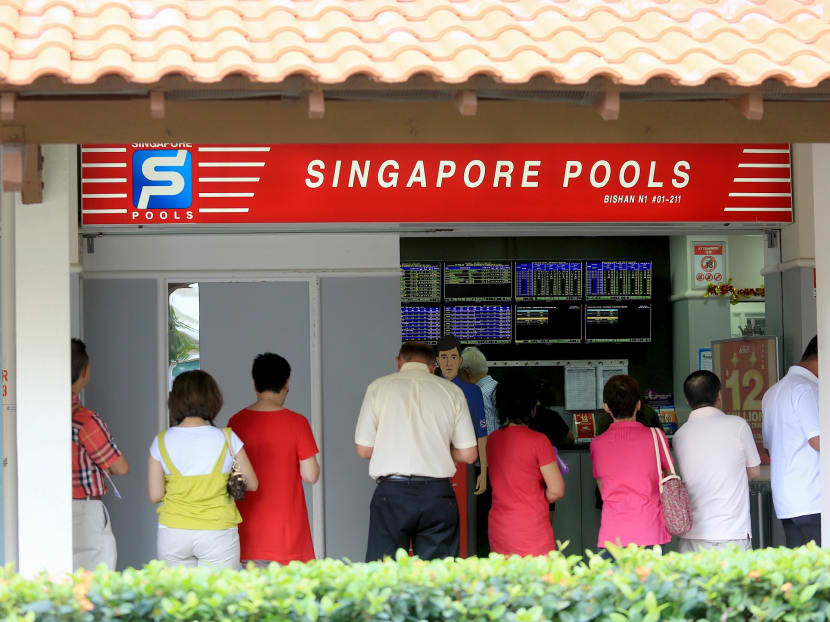Ex-wife awarded half of lottery winnings after appeal court rules they are matrimonial assets
SINGAPORE — Singapore’s highest court has ruled that lottery winnings count as matrimonial assets in a divorce, as it overturned an ex-husband’s claim to a bigger slice of S$1.25 million in winnings from a ticket he had bought.

In reversing a High Court decision, the Court of Appeal bumped up an ex-wife’s share of a lottery winning to 49.1 per cent on the basis that Section 112(10) of the Women’s Charter had stated that lottery winning received during the marriage is a “matrimonial asset”.
SINGAPORE — Singapore’s highest court has ruled that lottery winnings count as matrimonial assets in a divorce, as it overturned an ex-husband’s claim to a bigger slice of S$1.25 million in winnings from a ticket he had bought.
The ex-husband, now 63, and ex-wife, now 55, were still married in 2002 when 4D numbers delivered the hefty prize money. The ex-husband was initially given 58 per cent of the overall assets — in part on the basis that he had contributed the lottery winnings.
But the ex-wife appealed, and the Court of Appeal on Thursday (May 2) overturned the earlier High Court decision and ruled that the winnings should be divided equally between the divorcing parties since he had bought the ticket to benefit the family.
The three-judge panel said that the winnings had been mainly used to pay down the mortgage, and this showed that the winnings were meant to benefit the family as a whole, not just the husband.
The lottery prize money was deposited into the couple’s joint bank account and used mainly for their matrimonial home’s mortgage repayments.
Delivering the judgement, Justice Andrew Phang, who ruled alongside Justice Belinda Ang and Justice Woo Bih Li, said that the legal approach is "entirely consistent with the concept of marriage as an equal co-operative partnership of efforts”.
The court recognised that this approach would also mean that it would be “extremely difficult” for future spouses to argue that they are the “sole contributor” of the lottery winnings to the pool of matrimonial assets.
The couple, who were not named in court documents, were married for 23 years, and have two children aged 20 and 22. They were fighting for their share in over S$9 million of matrimonial assets after their divorce was granted in 2014 — 10 years after they separated.
The High Court had ordered that their assets be divided 42 per cent to the woman and 58 per cent to the man based on their contributions, noting that it was the husband who bought the winning ticket.
In reversing the decision, the Court of Appeal bumped up the wife’s share to 49.1 per cent on the basis that Section 112(10) of the Women’s Charter had stated that lottery winning received during the marriage is a “matrimonial asset”.
By law, only a gift or an inheritance could be excluded, and lottery winnings do not fall within the exception, Justice Phang said in the written judgement.
On the legal position if the husband had bought the winning lottery with the intention of keeping the winnings for himself, he said: “Regardless of the relevant spouse’s intention, the winnings themselves were received during the marriage itself and fall within the plain language of [Section 112(10)].”
On the question of how the court should divide up the winnings, he said that while the husband’s purchase of the ticket ought to be taken into account, the “more important" consideration here is the intention with which the ticket was bought.
This is due to the “the fortuitous manner in which (lottery tickets) are obtained as well as the disproportionality between the amount paid for the winning lottery ticket and the amount of the winnings themselves”, the judge said.
Lottery winnings are different from Central Provident Fund (CPF) savings, for example, which are the fruits of one’s labour, and therefore a contribution.
He ruled that it might be different if the husband could have shown that he bought the ticket with a view to benefit only himself, and not with the view that the family “as a whole” should benefit from such winnings, such as in cases where parties kept their assets and finances separate throughout their marriage.
Although the ex-husband lost this aspect of his divorce battle, he has enjoyed considerable luck as an “inveterate gambler”, the court heard.
The court noted that he had struck it lucky in the lottery three more times between 2011 and 2013 before divorce proceedings were complete. He won more than S$200,000 in 2011, more than S$48,000 in 2012, and S$1.032 million in 2013, while the woman won S$10,000 in 2010.
These winnings are not in dispute as the two parties had already separated in 2004, and it “can be inferred” that they both did not intend for any winnings from these tickets to be for the benefit of the family, the judge said.











